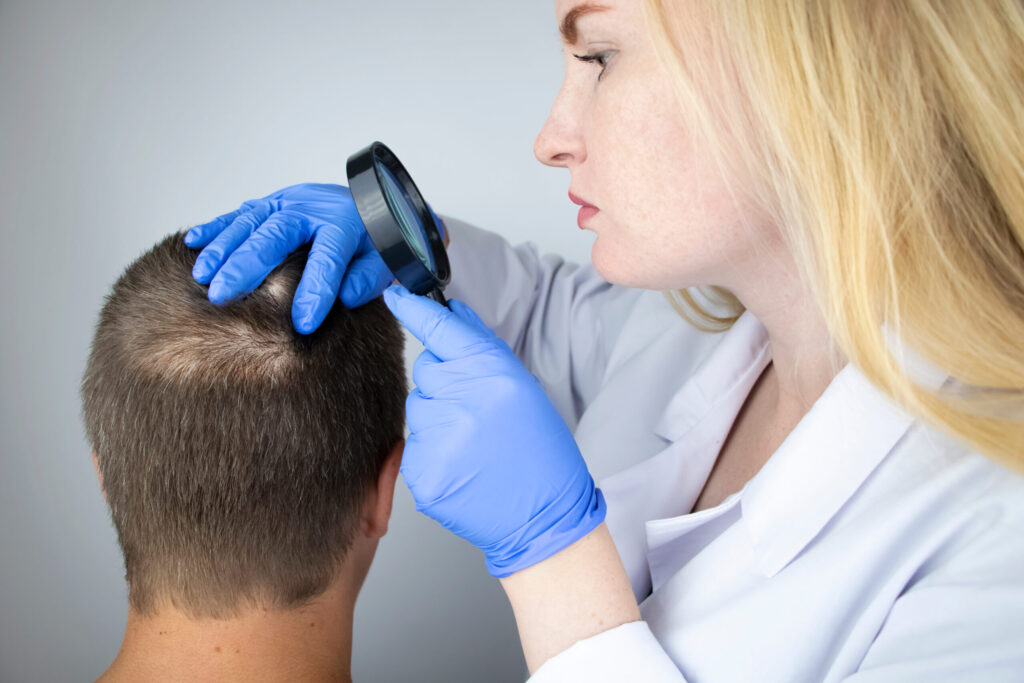
Hair fall can be a distressing experience, affecting not only your appearance but also your self-esteem. While occasional shedding is normal, excessive hair loss can signal underlying health issues. This is where a trichologist—a specialist in hair and scalp health—comes in. Understanding how a trichologist addresses hair fall concerns can empower you to seek the right help and regain confidence in your hair.
What is a Trichologist?
A trichologist is a trained expert who specializes in the study of hair and scalp disorders. They analyze hair health, diagnose conditions affecting hair growth, and provide tailored treatment plans. Unlike dermatologists, who focus more broadly on skin conditions, trichologists are specifically trained to deal with hair-related issues.
Initial Consultation and Assessment
The journey to addressing hair fall begins with a comprehensive consultation. During this initial visit, a trichologist will:
- Conduct a Detailed Medical History:
- Understanding your medical background, lifestyle factors, and family history of hair loss helps identify potential causes.
- Discussing any recent changes in diet, stress levels, or hormonal changes is also essential.
- Perform a Scalp Examination:
- Using specialized tools, a trichologist will assess your scalp’s health and look for signs of inflammation, dandruff, or other scalp conditions.
- They may use a dermatoscope to get a close-up view of hair follicles and assess their condition.
- Hair Analysis:
- The trichologist may analyze the thickness, texture, and overall health of your hair strands. This analysis helps determine the best course of action.
Identifying the Causes of Hair Fall
Understanding the underlying causes of hair fall is crucial for effective treatment. Common factors that a trichologist may identify include:
- Genetic Factors: Conditions like androgenetic alopecia (male or female pattern baldness) are hereditary and require specific treatment approaches.
- Hormonal Imbalances: Conditions such as polycystic ovary syndrome (PCOS) or thyroid disorders can significantly impact hair health.
- Nutritional Deficiencies: Lack of essential vitamins and minerals, such as iron, zinc, and biotin, can lead to hair thinning.
- Stress: High-stress levels can trigger telogen effluvium, a condition where hair follicles enter the resting phase and shed prematurely.
- Scalp Conditions: Issues like psoriasis, seborrheic dermatitis, or fungal infections can contribute to hair loss.
Customized Treatment Plans
Once the underlying causes are identified, a trichologist will create a personalized treatment plan tailored to your specific needs. Treatment options may include:
- Topical Treatments:
- Minoxidil: A popular over-the-counter solution that can promote hair regrowth and prevent further loss.
- Prescription Medications: In cases of hormonal hair loss, medications like finasteride may be recommended.
- Nutritional Guidance:
- A trichologist may suggest dietary changes or supplements to address deficiencies. Foods rich in vitamins and minerals essential for hair health, such as leafy greens, nuts, and lean proteins, may be recommended.
- Scalp Treatments:
- Treatments like PRP (Platelet-Rich Plasma) therapy or mesotherapy can stimulate hair growth by improving blood circulation and nourishing hair follicles.
- Lifestyle Modifications:
- Stress management techniques, such as yoga, meditation, or regular exercise, can be recommended to reduce stress-induced hair fall.
- Guidance on proper hair care practices, including gentle washing and styling techniques, will also be provided.
- Regular Follow-ups:
- A trichologist will schedule regular follow-up appointments to monitor progress and adjust the treatment plan as necessary.
Educating the Patient
An important part of a trichologist’s role is education. They will help you understand your hair type, the best care practices, and realistic expectations for treatment. This education empowers you to take an active role in your hair care journey and make informed decisions.
When to See a Trichologist
If you’re experiencing significant hair loss or changes in your hair’s texture, it’s wise to consult a trichologist. Signs that it’s time to seek professional help include:
- Noticeable thinning of hair
- Widening part or bald spots
- Excessive shedding (more than 100 hairs a day)
- Scalp irritation or flaking
- Changes in hair texture or strength
Conclusion
A trichologist plays a vital role in addressing hair fall concerns through a holistic and personalized approach. By understanding the underlying causes of hair loss and providing tailored treatment plans, trichologists can help individuals regain not only their hair but also their confidence. If you’re struggling with hair fall, seeking the expertise of a trichologist may be the first step toward healthier, fuller hair.

